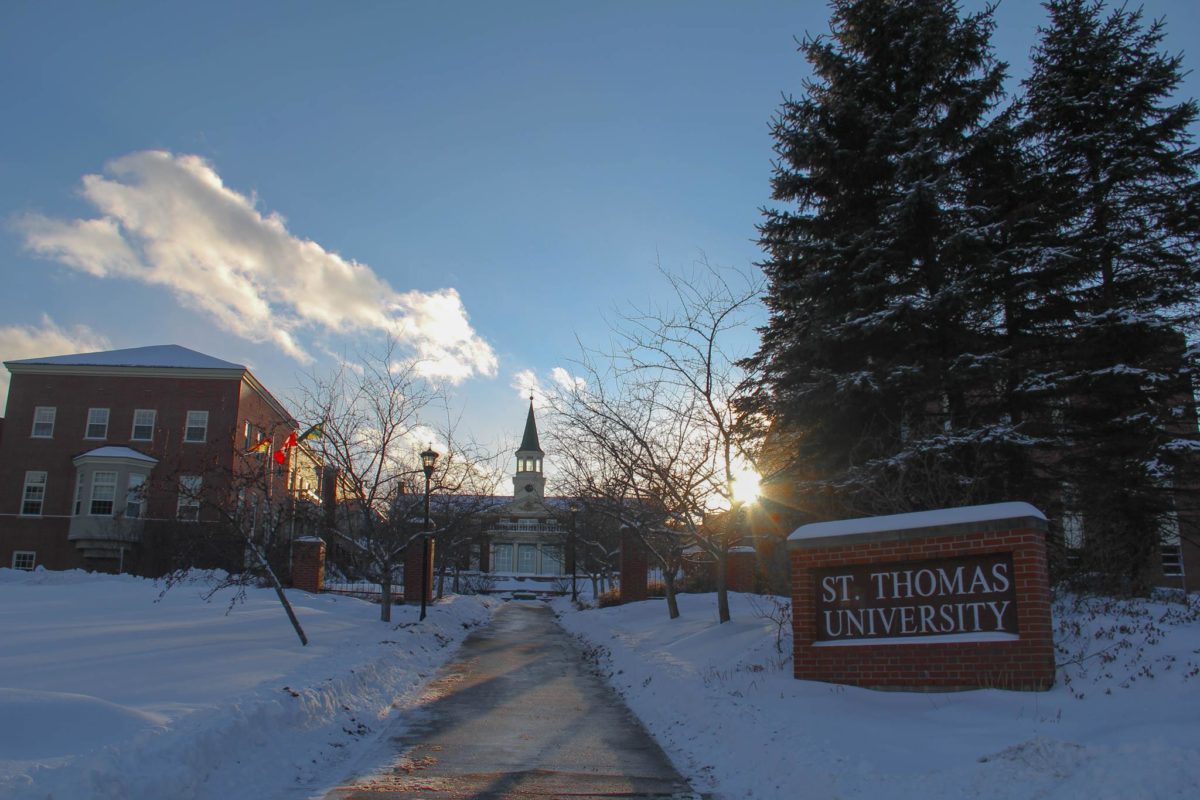Michael McDonald, Executive Director of Canadian Alliance of Student Association (CASA) and Robert Burroughs, Executive Director of the New Brunswick Student Alliance (NBSA) paid the St. Thomas University Students’ Union members a visit last week for a two-hour question-and-answer session. Since the STUSU meeting was cancelled because of the weather The Aquinian has highlights from this session in lieu of the regular briefs.
International student services
International student services were discussed at length at the Q&A. McDonald said the discussion on this issue will be brought up at CASA’s annual general meeting as there has been a lot of interest.
He said a white paper is being drafted specifically on international student issues. For example, rules are unclear on situations such as when someone is bringing their spouse along or what options international students have after graduation. He said the white paper will be available after the annual general meeting on March 13 to 15 at Acadia University.
Burroughs said on the provincial side, the push from the NBSA to highlight international student issues is a recent one.
“The NBSA doesn’t have a strong track record in that,” he said.
This year the NBSA has two international students on its board who have insured two out of its top 10 priorities are exclusively for international students. Burroughs said catering to international students comes with particular challenges in New Brunswick.
“In New Brunswick I think it is a little more acute that it is necessarily over at the federal level, and I’ll be very blunt about this, we’re concerned about the backlash we’ll get.
“This is something where every time we delve into international student issue and more benefits we try to provide international students through the work that we do … there’s a significant backlash to the idea of foreigners in New Brunswick, particularly foreigners of darker shades of colour,” Burroughs said.
He said the NBSA is aware of this hurdle and staff try to understand it in order to clear it.
“There’s the idea that a lot of international students come from overseas so they must be rich enough to pay for it so why should we provide them with benefits,” he said. “It’s never a straight-up backlash. No one will come up and explicitly say international students are bad. It’ll be stuff like, ‘How come we’re not letting in Joe Blow from down the street to our university? He can’t get financial assistance, so why are we covering international students?’ It’s a lot of veiled conversations.”
He said this mean securing student loans or similar programs for international students is not a priority. However he said most of the universities in New Brunswick are re-evaluating their internal financial assistance programs, which may allow international students to receive more emergency bursaries.
The difference between CASA and NBSA and bridging the gap
McDonald said every member of the NBSA is a member of CASA. He said the two organizations must always be communicating since CASA lobbies nationally and the NBSA lobbies provincially, and each order of those governments may have different priorities and may operate differently.
Once the NBSA has done enough research and collected enough information on a particular subject, members will pass that information to CASA when they’re ready for action.
“It’s pretty much a symbiotic relationship,” Burroughs said.
The Atlantic Immigration Pilot Project
Burroughs said the NBSA is the only student organization within the Atlantic Immigration Pilot Project. He said this program offers a unique path to permanent residence for international students. He said it’s still unclear what the status is for current international students.
“My understanding is pathways to [permanent residence] post-graduation will take immediate effect once they’re confirmed,” he said. “We’re unsure right now that the government has placed a high enough priority on recruiting new international students.”
He said international students bring a lot of money and diversify the community.
“My understanding … once we have it confirmed is if you graduate from a New Brunswick university or an Atlantic university and you have a job that’s your ticket to [permanent residence].”
He said nobody at this point has a time frame for when these changes take effect.

